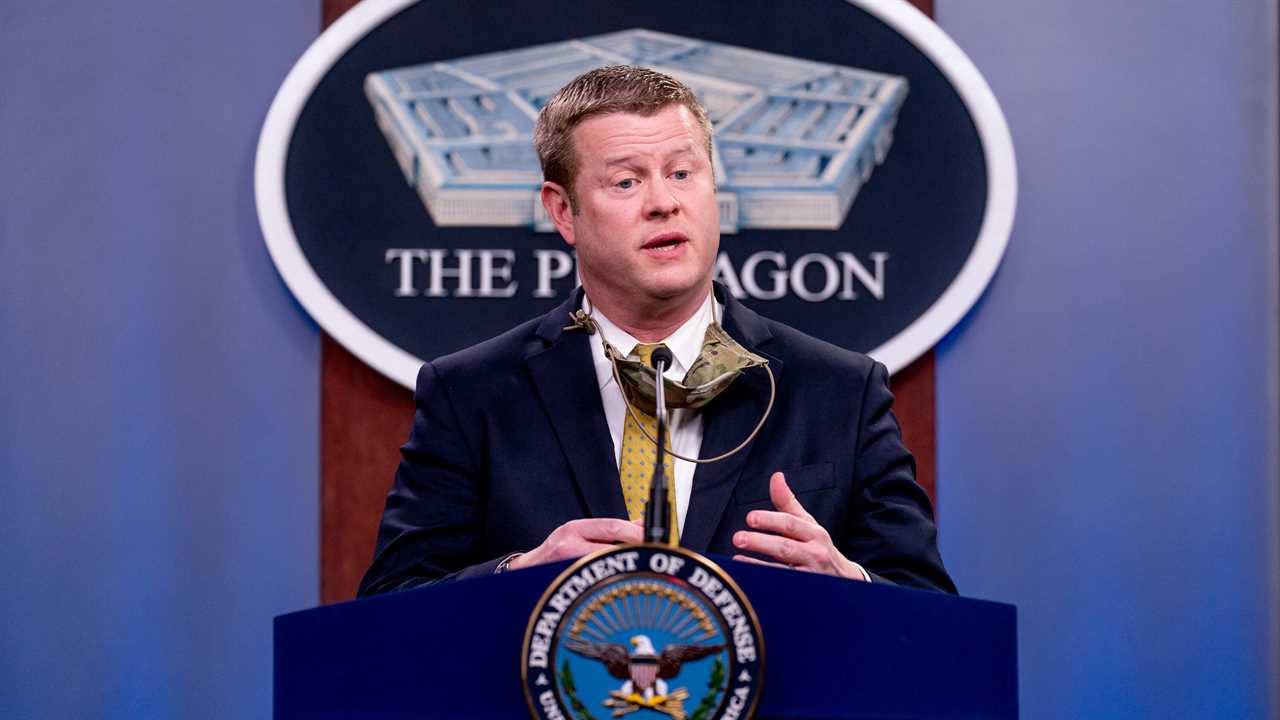
WASHINGTON — In his final days as Secretary of the Army, Ryan D. McCarthy has moved to thwart a federal judge’s order for an independent examination of a mentally ill prisoner at Guantánamo Bay who was previously tortured there, the Justice Department disclosed on Friday.
Lawyers for the prisoner, Mohammed al-Qahtani, 45, had obtained the order in March for two foreign doctors and one from the U.S. Army to examine the man under an Army regulation to determine whether he should be repatriated to his native Saudi Arabia for psychiatric care.
The Defense Department has not permitted such a medical review since the detention center was established in January 2002, and the order was poised to become an early test of the Biden administration as it considers resuming releases from Guantánamo.
But on Friday, Justice Department lawyers notified the U.S. District Court in Washington that Mr. McCarthy had signed a two-page memorandum on Monday excluding detainees at Guantánamo from the regulation that was the basis of the court order.
In March, Judge Rosemary M. Collyer ruled that the regulation required the medical review, and that if the doctors found repatriating Mr. Qahtani to Saudi Arabia was in his best interest, she would order it.
The order rattled the Defense Department, which has fought for nearly two decades to block civilian courts from deciding questions involving the detainees. Officials warned that, if an examination were conducted, others among the current 40 detainees would seek medical repatriation.
Judge Collyer has since retired, and another judge, Ellen Segal Huvelle, upheld the order in August. The next month an appeals court rejected a government pleading to delay the examination, leaving the Trump administration with a quandary: Permit the first ever decisive outside evaluation of a Guantánamo detainee or, as previous administrations have done to avoid court orders to release a detainee, voluntarily transfer Mr. Qahtani to a psychiatric hospital in Saudi Arabia.
It did neither, citing restrictions at Guantánamo during the coronavirus pandemic.
Given Mr. McCarthy’s decision to alter the regulation, the Justice Department on Friday asked the court to vacate Judge Collyer’s order. “The entire legal basis underlying this court’s March 2020 Order has evaporated,” it said.
Once Mr. Biden takes office next week, his Justice Department could choose to maintain the same position or withdraw the request to the court.
Mr. Qahtani’s lawyer, Ramzi Kassem, called the move “a last-ditch effort by the Trump administration to lock Joe Biden into a path of resisting the independent medical examination of a mentally ill man that the government has admitted torturing.”
Mr. Qahtani, who was diagnosed with schizophrenia, was captured along the Pakistan-Afghanistan border three months after the Sept. 11, 2001, terrorist attacks and subjected to two months of continuous, brutal interrogation at Camp X-Ray at Guantánamo in late 2002 and early 2003.
Leaked documents show that Mr. Qahtani was deprived of sleep and water, kept nude and was menaced by dogs, while under the care of military medics.
“There is no real question that the examination will confirm my client’s severe illnesses and lead to his medical repatriation,” said Mr. Kassem, a law professor whose clinic at City University of New York represents Mr. Qahtani.
Mr. Qahtani has been suspected of being one of several failed, aspirational 20th hijackers in the Sept. 11 attacks. But he has never been charged with a crime, in part because he was tortured.
Stephen I. Vladeck, a professor at the University of Texas School of Law who follows Guantánamo litigation, said the Army secretary has the authority to modify a regulation but the question likely confronting the court will be “whether the change is procedurally valid and whether it can be applied retroactively to this pending case.”
He also called the timing suspicious, days before Mr. McCarthy is relieved as Army secretary. “They lost on the rule. So they changed the rule.” He called it “a pretty shady way to duck the issue.”
A Pentagon spokesman, Mike Howard, declined to comment on the change, including whether the Department of Defense’s general counsel was consulted beforehand.
Did you miss our previous article...
https://trendinginthenews.com/usa-politics/top-lawmakers-not-told-of-police-request-for-backup-before-riot-aide-and-others-say






